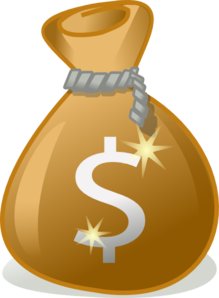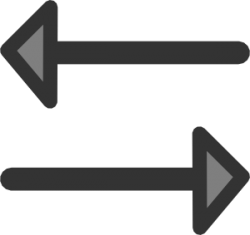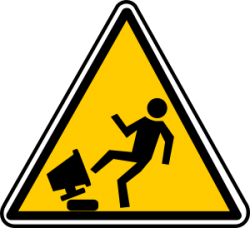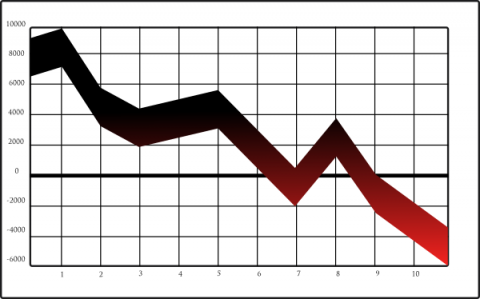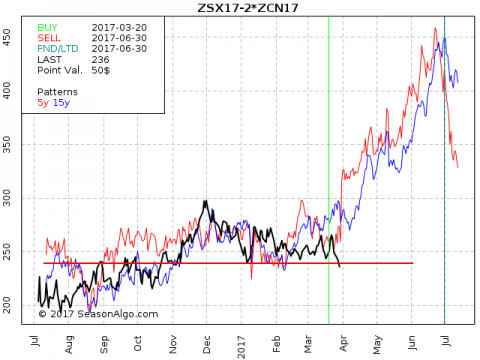Trading Educators Blog
Once a trade is entered, there are two possible outcomes: Win or lose. Between the two is the breakeven point, and because it is in-between, it’s psychologically significant. Losing is involved with fear and hope. Winning is involved with greed. When on the losing side of a trade, the breakeven point is a place that inspires hope. Being human we have a natural tendency to avoid risk and loss...
Money management involves a number of things and it is not to be confused with trade management. Money management is static. It deals with things like deciding the size of your margin account; deciding how much of your account you will put at risk on any one trade; deciding where to place your stop; and deciding on fixed objectives. The main purpose of money management is to save you from a disast...
Careful analysis of all possible alternatives and all possible consequences of your trading decisions is the first step in good decision-making. Make every attempt to avoid impulsive trading decisions, invariably these lead to taking unnecessary risks. Strive to have a clearly defined trading plan, but keep it as simple as possible. Chart the equity of your trading method so that you can quickly k...
When you are in a slump and feeling frustrated and disappointed, you tend to think, "I'll never be profitable, and there is nothing I can do about it." The consequences of such reasoning are that you'll never feel like putting on a trade ever again. It is better to think, "Profitable trading is almost impossible, but I can learn how the markets work, develop the necessary skills, and eventually ac...
“Hello, Kramer? You got a minute? Take a look at the Swiss Franc chart what do you think?” “Well, I’ll tell you what I think! If the market is not going up, then it ought to be going down. But, if it’s not going down or up, it must be going sideways unless, of course, it’s making a correction. But, if it’s not making a correction, maybe this is a small congestion, unless, of course, it’...
Trading can be difficult. It often requires you to look for trading opportunities during off hours. You can be making the mistake of thinking you have to take trade after trade during the trading day. When you think you have to trade all the time, trading can become a real labor, something difficult to keep at doing. Even the most exciting, rewarding activity can become commonplace if you drive yo...
People have the tendency to believe that the accuracy of their forecasts increases with more information. This is the illusion of knowledge - that more information increases your knowledge about something and improves your decisions. However, this is not always the case - increased levels of information do not necessarily lead to greater knowledge. There are three reasons for this. First, s...
Imagine playing tennis if the ball had a mind of its own, if it could run off to the sidelines and bounce up and down for a minute or two. Imagine a game of golf in which the ball could occasionally go off down the fairway, dance about, and do whatever it wanted. Imagine a chess game in which the pieces suddenly became worthless, or a hockey game in which the puck suddenly went against everything ...
Trading is a business where you expect to see more losing trades than winners. Expecting to win is apt to produce more disappointment than joy. That doesn’t mean you won’t have a high percentage of winning trades, but it is safer to anticipate otherwise. To the beginning trader, especially, this fact of life can be stress producing and somewhat disappointing. How you cope with losses i...
Today I am looking at a so called ratio spread: Long 1 November Soybean and short 2 July Corn. The spread looks interesting to me because it is trading at a level where it could turn around again and follow its seasonal pattern to the up-side. The current level (approx. 235) has provided support several times. The seasonal statistic looks promising as well, with 17 winning trades in a row. But thi...
Conclusion It is critical to develop a well thought out and organized trading plan. It is then important to have the discipline needed to follow it. Diversify your trading into several unrelated markets, or focus on one market and time frame where you have seen you can make money. Trading, by its nature is not investing. Trading requires consistent monitoring on at least a daily basis because of t...
Manage the Trade Once you get into a trade, you must eventually get out. Some argue that this is more important than where you get into a trade. My experience has been that any fool can get into the market, but it takes a successful trader to consistently get out with a win. As I follow the markets, I find there are four reasons to get out of a trade. Prices move significantly against my position....
Please listen to the following podcast when you have a few minutes: https://www.bloomberg.com/news/audio/2017-03-03/the-incredible-true-story-of-the-real-life-trading-places I found the podcast interesting because of a few facts I want to discuss in today’s blog post. First of all, I am also a believer that trading can be trained but not necessarily everyone can trade. Trading requires a cer...
Follow the Markets After you've determined your strategy and the market or markets you will trade, you can start following the price action. It is important to follow each market consistently and see the trading opportunities as they develop. Jumping around from one market to another often leads to missed or late execution of your method. I think it's important to let the market tell you what to d...
Diversify: Next, you'll need to choose which markets to follow. Diversification is one of the crucial factors in the success of some, but not all trading plans, and may in fact make the difference between success and failure of the plan. Putting all your eggs in one basket is not a good idea for some traders. This approach takes the position that rather than trading ten contracts in one mark...
How to Get Started: I've seen many different trading plans. Whether they're two paragraphs or ten pages long, they put forth a way of looking at the market and they attempt to create some framework for approaching the markets. A good plan will include a well-tested strategy, a trading method, or a setup. Having a positive expectation should allow you to have the confidence to start t...
Discipline is the Key: You will need discipline in several areas to be successful. First you'll need the discipline to make a plan, rather than shoot from hip. Without discipline, many approach the markets like a craps table and they can expect the same results; short-term successes based on luck and long-term losses based on randomness. Second you'll need the discipline to follow the plan. ...
Develop a Trading Plan The main message, I want traders to understand is how important the disciplined execution of a well thought out trading plan is in today's markets. Nobody knows for sure what a given market will do next. Having a plan of attack will allow you to successfully cope with the uncertainty that is an inherent part of trading. I think it makes good common sense to have a well t...
Today I am looking at a very “strange” butterfly spread: Long 1 April Feeder Cattle and one May Corn and short 2 Live Cattle August. I have to admit that it is difficult to find an entry into this trade by looking for chart patterns but it is easy to see the possible support around the current level. OK, the spread moved a bit lower in July last year but this happened when there was not eno...
You need to find other things to do while padding the time waiting for better trades. Try to study the markets or different ways of trading, or simply do something completely different like going to the beach. It is critical that you learn to enjoy yourself in ways other than being in a trade. The fact is, if you are trading in a professional way, you are out of the market much of time. So you nee...



